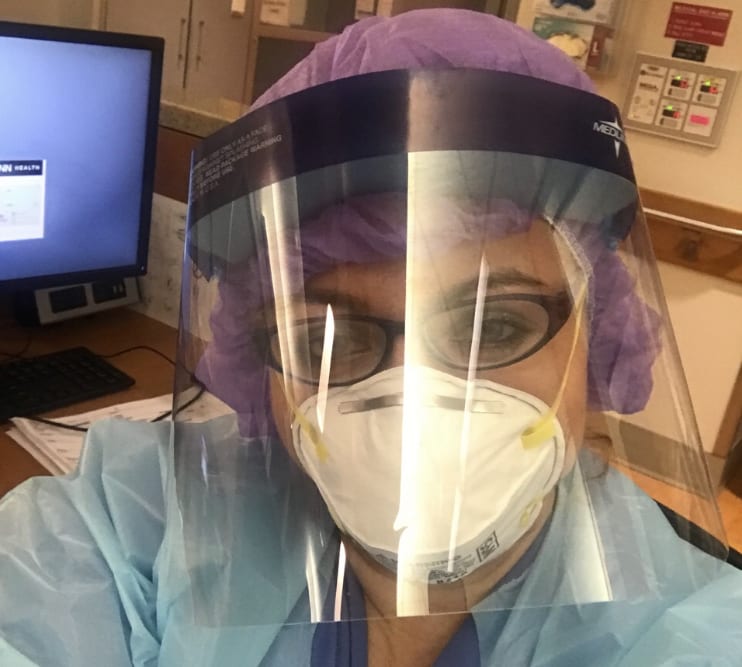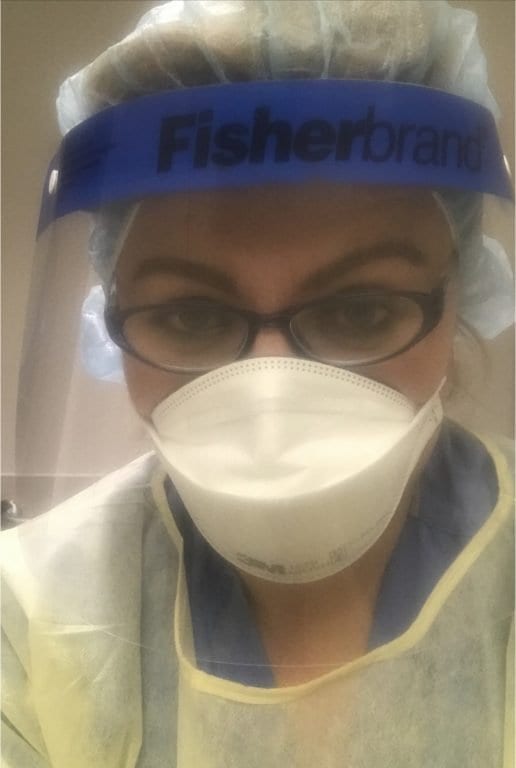West Hartford Resident: ‘Someone’s Plasma Saved My Life’

Audio By Carbonatix

Maria Budzinski. Courtesy photo
Things have come full circle for a nurse from West Hartford who was treating COVID-19 patients, then caught the virus, received a plasma infusion, and is now hoping to donate her own plasma.
Submitted by Jennifer Walker, UConn Health

Maria Budzinski. Courtesy photo
Maria Budzinski, 47, of West Hartford, had been working as a registered nurse on the Med 3 unit of UConn John Dempsey Hospital treating patients with COVID-19.
She made sure that, both at work and home, she followed all guidelines and protocols to keep her and her family safe from contracting the virus. When she started to have symptoms, she stayed in bed, hoping it was something other than COVID-19. However, the next morning when she had developed a fever of 100.4, was shivering, had a cough and weakness, she knew she needed to call the COVID-19 Call Center at UConn Health and to get a test.
Within a day it came back positive, indicating she indeed had contracted the virus that she had treated so many for.
She felt like her muscles were giving out and she was paralyzed she could hardly move. It felt like the virus was climbing through her spinal cord to every nerve, and while she did not have any hallucinations, she felt like her headache was the worst somebody could ever have. She checked her oxygen levels and was fighting to try to manage the symptoms but when her oxygen levels fell into the 70s and her heart rate was at 160 she realized she needed more medical assistance and called an ambulance to take her to UConn John Dempsey Hospital’s Emergency Department (ED).
In the ED she was given a chest X-Ray and CT scan. Once her oxygen levels were stabilized she was moved to the Med 3 unit where she worked.
“At first it was embarrassing because these were my coworkers and I was not used to having them see me as a patient, but everybody there was so excellent in taking care of me and making me feel as comfortable as possible,” says Budzinski.
Being confined to bed, she had a lot of back pain and everything hurt. “I felt like I was suffocating it was so hard to breath,” Budzinski remembers.
Dr. Lisa Chirch of the infectious diseases team studying the use of convalescent plasma in patients with COVID-19 reached out to Budzinski to see if she would be interested in participating in the study being conducted under a protocol developed by the Mayo Clinic.
“The use of convalescent plasma is not at all new to medicine and can be traced back to the 20th century,” says Mauricio Montezuma, site Principal Investigator for UConn Health. “It refers to the use of plasma from someone who has recovered from an infection, which is given to a patient with the same disease. Data on convalescent plasma in COVID-19 is limited; however, early reports from China and Italy are promising.”
According to Chirch, there have now been nearly 30 patients who have received convalescent plasma at UConn Health. In order to receive a plasma donation patients have to consent to participate in the study. Most patients who are sick enough to be in the hospital meet criteria to participate. While the Mayo Clinic has not yet released the study findings, it appears that those who get plasma early on do very well.
Our immune system has to work to develop specific antibodies, which can take weeks, whereas the convalescent plasma already contains the antibodies from a patient who has recovered from COVID-19. This provides the patient with antibodies their system didn’t need to make, speeding up the healing process.
“The process has become very organized,” says Chirch. “Once a patient is evaluated and has consented to participate, and his or her blood type is determined, an order for plasma is placed with a fairly rapid turnaround time. Several units may be available at any given time, but may take a bit longer for rarer blood types.”
The transfusion only takes 20-30 minutes to complete. Budzinski received one unit of plasma and two days later felt better; within a week, she felt like herself again and was ready to go back to work.
“It has been remarkable how many people have done really well and were discharged fairly quickly after their transfusion,” says Chirch.
Budzinski is now back to work caring for patients with COVID-19, and she sees them with a new perspective knowing how uncomfortable they are. “I have a whole new level of compassion, seeing them through me.”
“In the absence of a clear, effective medication for this virus, plasma gives people a really good chance, and we should be considering this option,” says Chirch. “This is something we can be doing routinely with relatively low risk and significant potential to be helpful, especially early on.”
Budzinski plans to donate her plasma as soon as she is cleared to do so: “Someone saved my life, why wouldn’t I do the same for them?”
Those who have had a positive COVID-19 test and have had a resolution of symptoms for at least 14 days can donate their plasma by contacting the American Red Cross. Those who believe they had the virus but were not tested can have an antibody test to determine their ability to donate plasma. For questions about COVID-19 please call the UConn Health Call Center at 860.679.3199 or visit UConn Health online.
Like what you see here? Click here to subscribe to We-Ha’s newsletter so you’ll always be in the know about what’s happening in West Hartford! Click the blue button below to become a supporter of We-Ha.com and our efforts to continue producing quality journalism.



